I held a private book launch for guests of mine, who are interested in dementia at the grassroots level.
The talk was dedicated to Charmaine Hardy (@CharBHardy), whose husband has a very rare type of dementia known as primary progressive non-fluent aphasia. The publishers picked her poppy to be the cover of my book.
This for me, as was later suggested, as the book itself is dedicated to the memory of my late father (who did not have dementia but had a severe back pain which severely limited his quality of life in his final years.)
A special mention to Thomas Whitelaw (@tommyNTour) – a true gentleman and a Scot (!)
It was wonderful to meet Darren (@MrDarrenGormley) for the first time. Darren’s clearly someone who sees the person; with superb empathy skills, Darren and colleagues will need to be the change catalysts to break down obstructive silos.
It was a massive honour Beth Britton (@BethyB1886) could make it. Beth, like many in the room, of course knows this subject inside-and-out, and I am personally grateful to Beth for campaigning for the use and validation of more effective assessment of wellbeing approaches.
Here are some happy photos of my book launch.
I really couldn’t have been happier.
I am strongly against promoting my thesis about wellbeing with involvement of people as marketing ‘window dressing’
On the other hand, it gives me enormous pride to present to you the video presentations recorded by Norman McNamara, Kate Swaffer and Dr Peter Gordon which I played to my guests at the Arlington Centre in Camden on Saturday.
Friends of mine, who happen to be currently living with dementia, are also reading the book.
I mention during my presentations the ‘Purple Angels’, including Lynette Richards, Julie Line, Kim Pennock, Jane Moore, and of course Norman McNamara.
And no I am not a retainer from Ostrich Care! x
I feel it would have been it would have been “defeating the object”, if the book could not be read by people living lives with dementia.
Dr Peter Gordon is the only one of the three who does not have a dementia. He is a Consultant Psychiatrist working in this field. It was incredibly nice of him to put together his film for me, shown below.
Kate Swaffer (@KateSwaffer)
Norman McNamara (@norrms)
Dr Peter Gordon (@peterDLROW)
Living Well with Dementia from omphalos on Vimeo
Contents
Dedication • Acknowledgements • Foreword by Professor John Hodges • Foreword by Sally Ann Marciano • Foreword by Professor Facundo Manes • Introduction • What is ‘living well with dementia’? • Measuring living well with dementia • Socio-economic arguments for promoting living well with dementia • A public health perspective on living well in dementia, and the debate over screening • The relevance of the person for living well with dementia • Leisure activities and living well with dementia • Maintaining wellbeing in end-of-life care for living well with dementia • Living well with specific types of dementia: a cognitive neurology perspective • General activities which encourage wellbeing • Decision-making, capacity and advocacy in living well with dementia • Communication and living well with dementia • Home and ward design to promote living well with dementia • Assistive technology and living well with dementia • Ambient-assisted living well with dementia • The importance of built environments for living well with dementia • Dementia-friendly communities and living well with dementia • Conclusion
Sample chapter
The slides of the presentations
Reviews
Amazing … A truly unique and multi-faceted contribution. The whole book is infused with passion and the desire to make a difference to those living with dementia…A fantastic resource and user guide covering topics such as communication and living well with dementia, home and ward design, assisted technology, and built environments. Shibley should be congratulated for this unique synthesis of ideas and practice.’
Professor John R Hodges, in his Foreword
‘Outstanding…I am so excited about Shibley’s book. It is written in a language that is easy to read, and the book will appeal to a wide readership. He has tackled many of the big topics ‘head on’, and put the person living with dementia and their families at the centre of his writing. You can tell this book is written by someone who ‘understands’ dementia; someone who has seen its joy, but also felt the pain…Everyone should be allowed to live well with dementia for however long that may be, and, with this book, we can go some way to making this a reality for all.’ –Sally-Ann Marciano, in her Foreword
Extracts from my talks
This talk was given by me (Dr Shibley Rahman) on Saturday 15th February 2014 to a group of personally invited guests. Guests included persons with dementia, carers (past and present), campaigners, academics in social care, innovation and service provision, dementia club coordinators, and dementia nursing specialists.
1. This is the first segment of the first talk.
Particular things to look out for include:
James Murray-White (@sky_larking) 6 mins
Beth Britton (@BethyB1886) 7 mins
and their @AlzheimersBRACE work
Norman McNamara’s message at 15 mins
@mason4233 (Chris Roberts)’s tweet at 19 mins
2. I start off by thanking Prof John Hodges for his kind Foreword (0) and a clear description from Sally Marciano (@nursemaiden) why she, kindly, felt the book might be helpful. I am honoured at Sally’s personal contribution to my book.
I introduce the topic of personhood, using Tom Kitwood’s seminal work as a brief introduction only, but clearly the topic is huge. I then touch upon the practical difficulties academics and practitioners have had for their definitions of ‘living well’, and the implications therefore for its measurement.
There’s a clearly a debate to be had about why diagnosis might have been so problematic, using @edanaming’s research (Edana Minghella) as a springboard. At around 9’55”, I then use the problems in giving a potential diagnosis of dementia to a person is LGB or T as an illustration.
Gill Phillips (11′ 30″) kindly gives a brief description of the background and philosophy behind ‘Whose Shoes’, a modern application of personalisation which allows service users, including persons and patients with dementia, a say on what they wish to achieve from their person-centred care.
At around 16’30” Lucy Jane Masters (@lucyjmasters), a specialist nurse in dementia, explains the remarkably successful ‘Dementia is my business’ initiative, innovative badges which have acted as an ‘ice breaker’ for bringing about a cultural change in dementia care even amongst health professionals.
This next segment concludes with a brief discussion of the ethical issues of diagnosis, through Dr Peter Gordon’s contribution (@PeterDLROW). I use Peter’s letter to the BMJ as an introduction to the seminal four ethical principles of Beauchamp and Childress (1979), i.e. autonomy, beneficence, non-maleficence and justice. I also include Peter’s video which I will also separately upload elsewhere.
3. I then give an overview of some essential topics germane to this academic debate.
The contributions by the medics have not been a complete farce.
There’s been a lot of scrutiny about the ethical framework regarding dementia from people who are medically qualified, such as Dr Peter Gordon (@peterDLROW), Consultant in dementia. This was been necessary to neutralise some of the potent fraudulent memes in the media from elsewhere.
There’s been wonderful work too by @nchadborn on including service users’ views and opinions into the design of health services, from an applied perspective, as part of Nottingham University.
And the cognitive neurologists have been important in delineating the diverse cognitive presentations of dementia. Prof Facundo Manes’ group in Buenos Aires (@manesf) have been identifying how social cognition in the behavioural variant of frontotemporal dementia can be heavily dependent on context. As an example of this, I explain the Ebbinghaus Illusion and Titchener circles. Prof Manes is a colleague of ours in cognitive neurology, and wrote one of the Forewords to my book.
4. Particular things to look out for now include:
12″ Personal dedication to Charmaine Hardy [@CharBHardy] from England for the poppy on the front cover of my book, and being a key member of the #dementiachallengers
15″ The “Purple Angels” in raising dementia awareness and dementia friendly communities worldwide narrative. Jane Moore and Norman McNamara jointly designed this motif.
21″ beginning of the message by Kate Swaffer (@KateSwaffer), based in Adelaide, Australia, to my guests. (this is the beginning of the pre-recorded message; the second half of the message is in a different video.)
5. This last segment of my recordings contains the second part of Kate Swaffer’s message to my guests, and my film ‘Love is a wonderful thing’ for my community of delegates for the book launch.
The book
The book’s Amazon page, with some testimonials, is here.
The publishers’ page (Radcliffe Publishers) is here.
Independent blogposts by Gill Phillips (one of my guests) about my book launch at the Arlington Centre
These blogposts capture for me what was an extremely happy occasion for me.
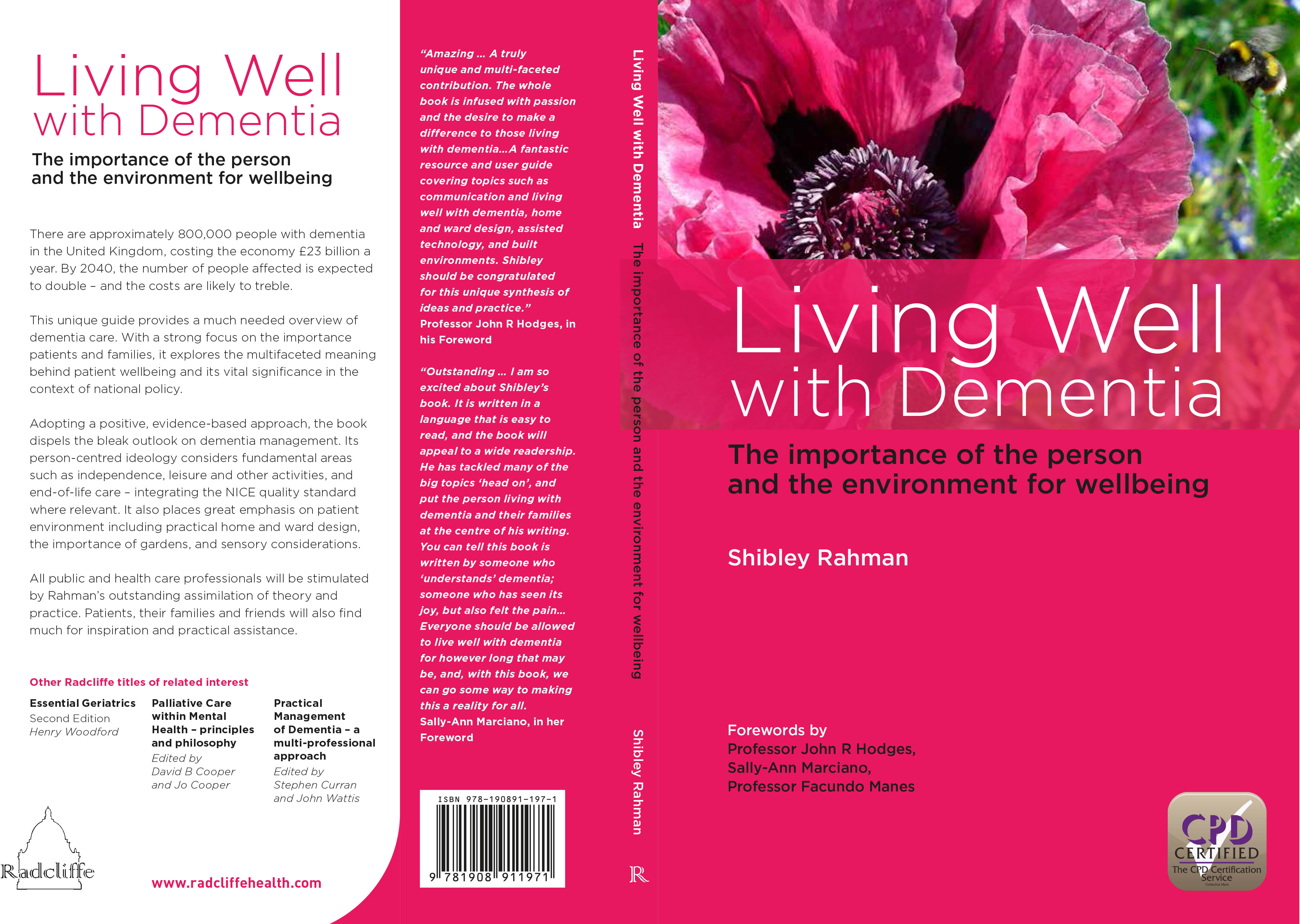
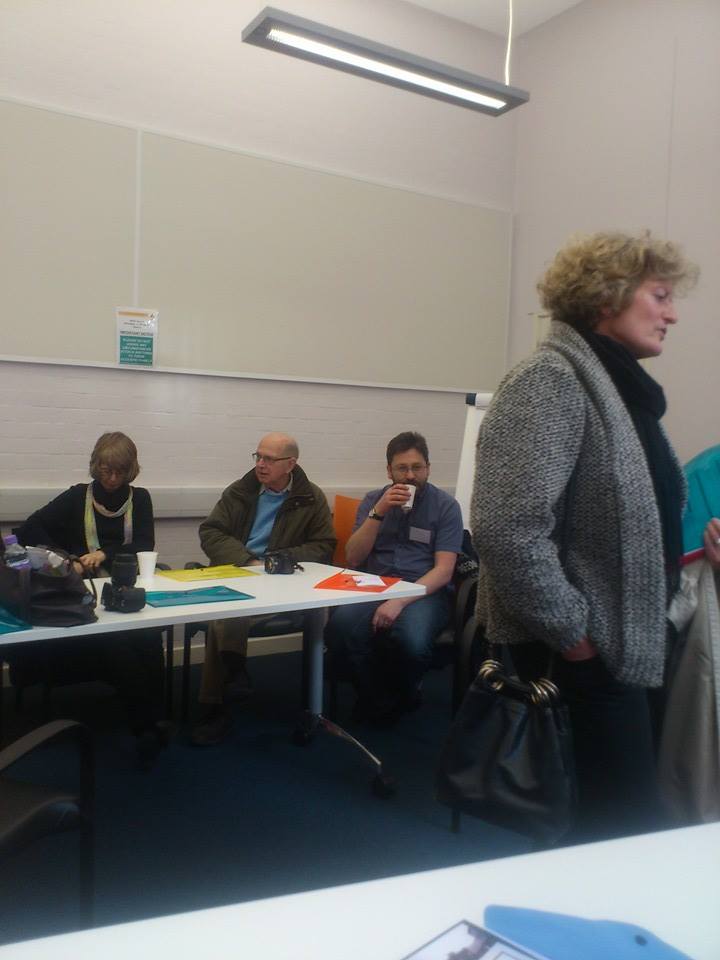
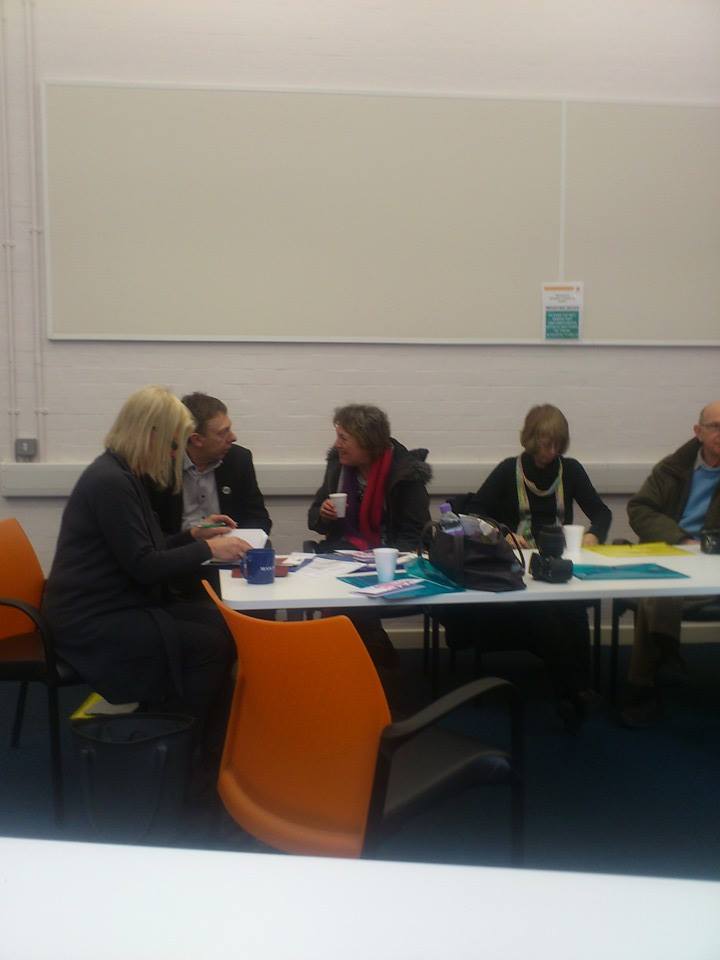
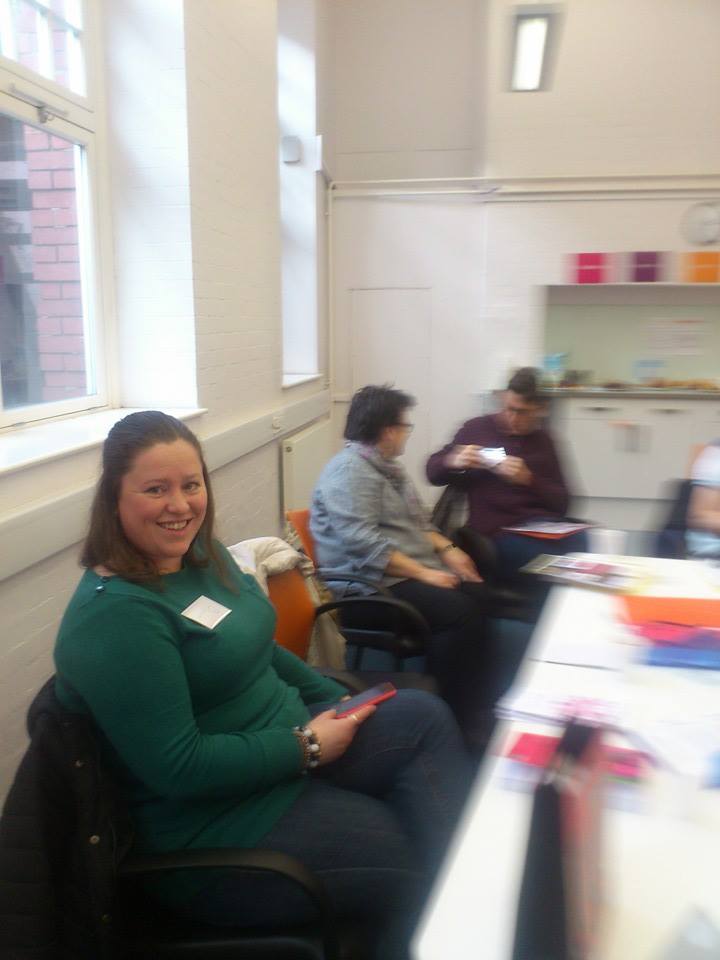
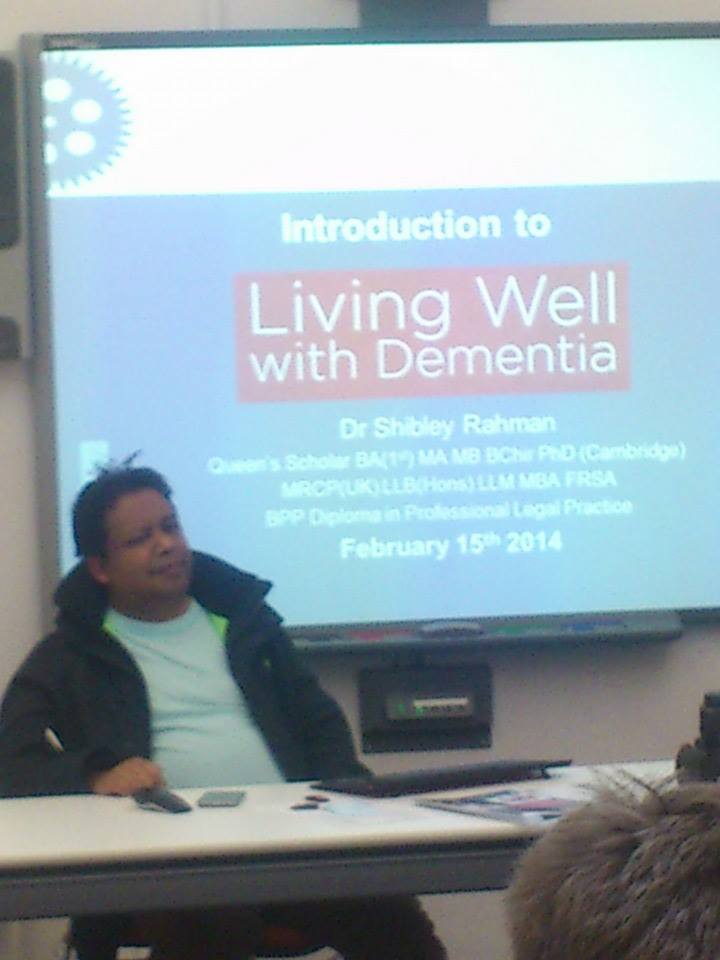
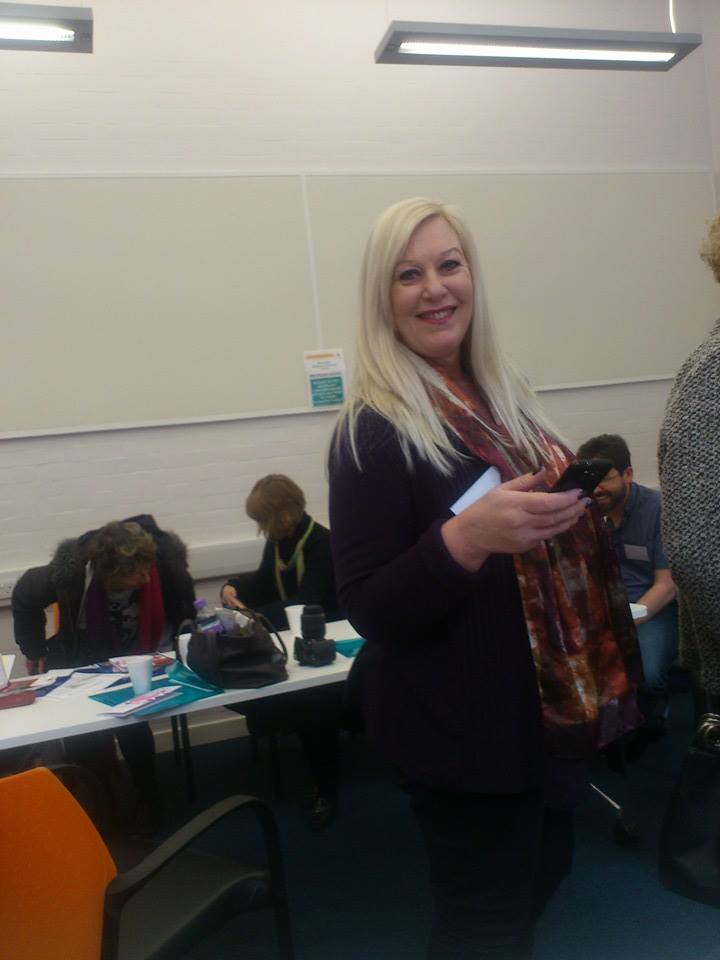
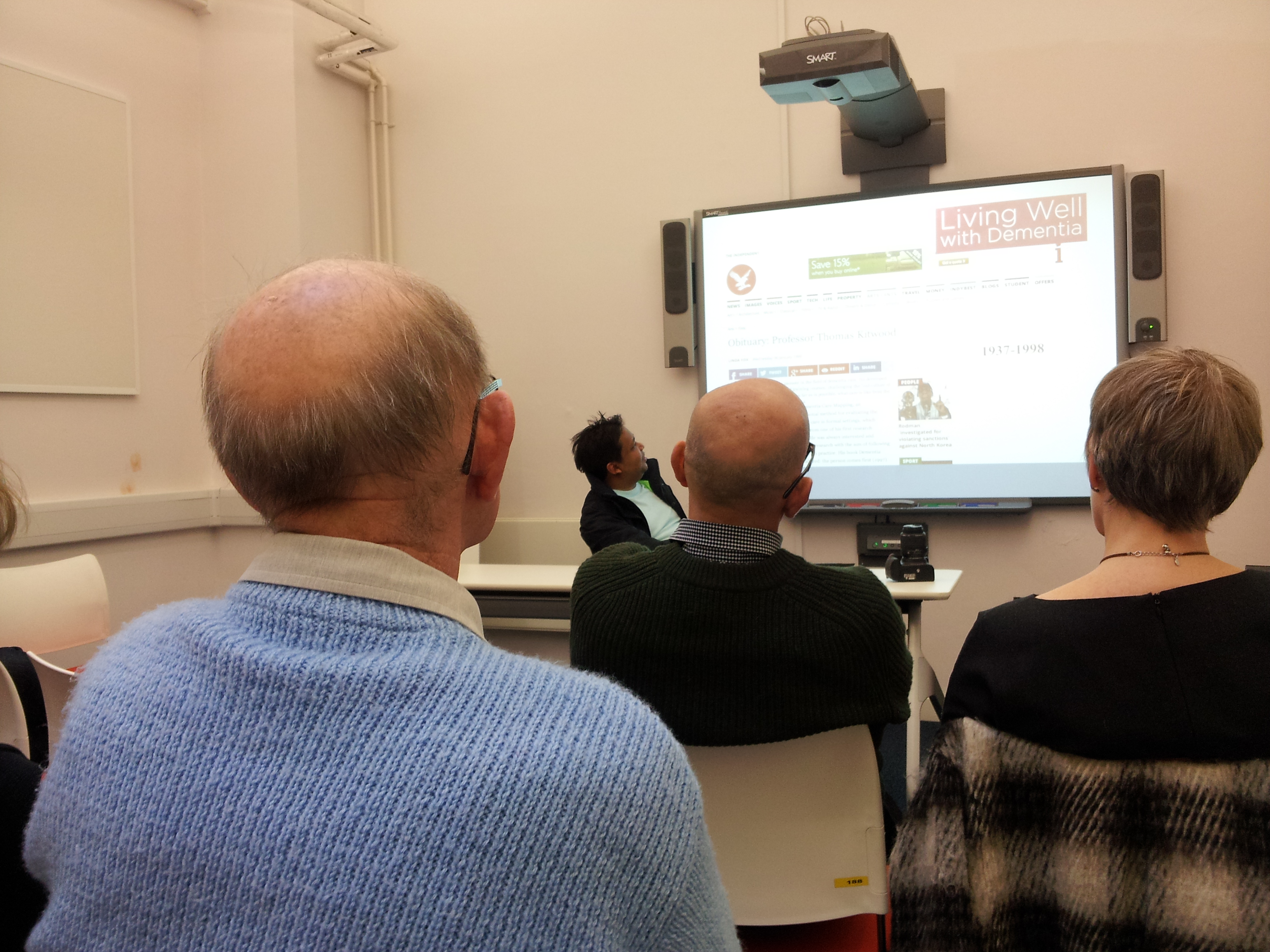
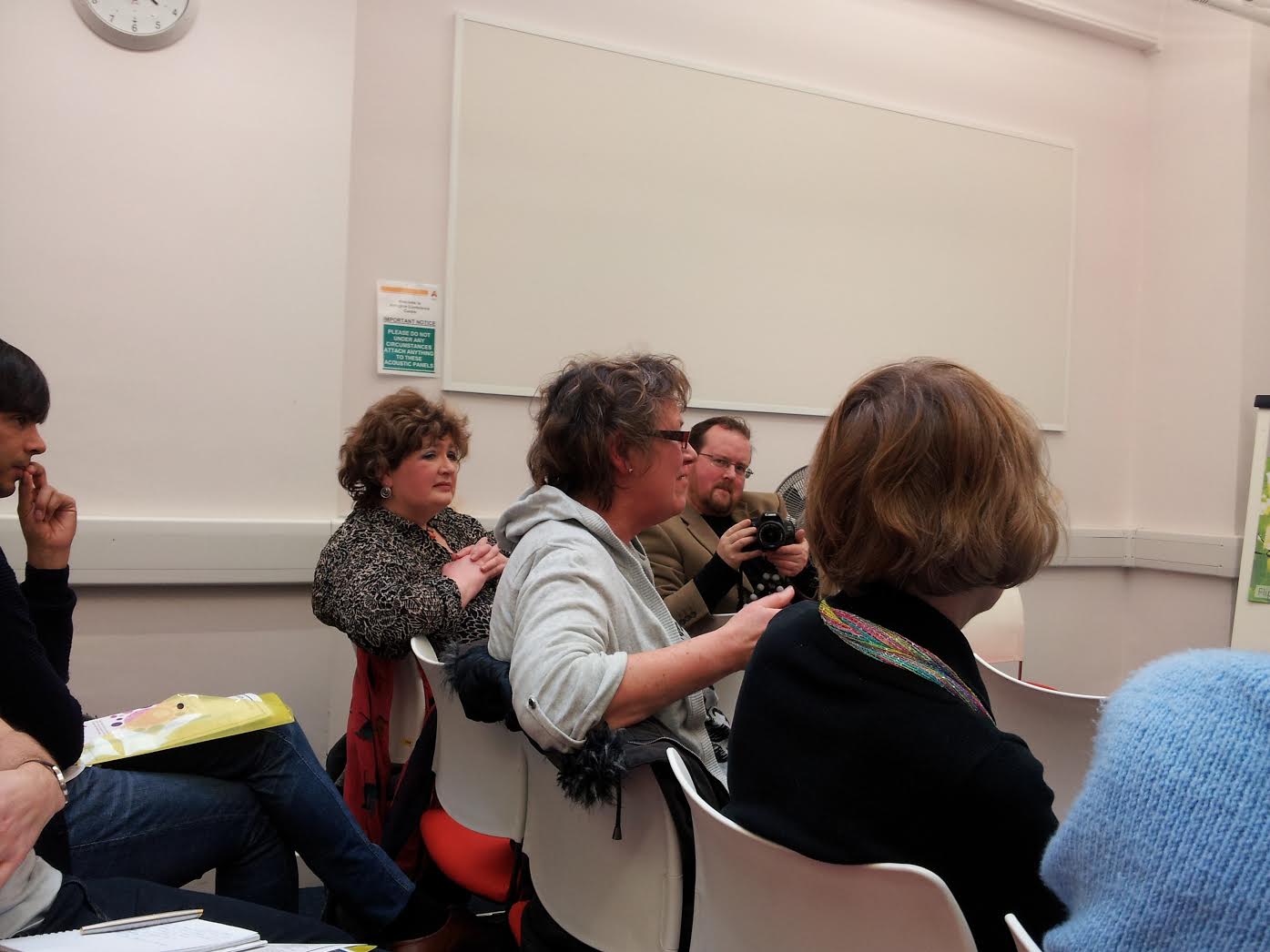
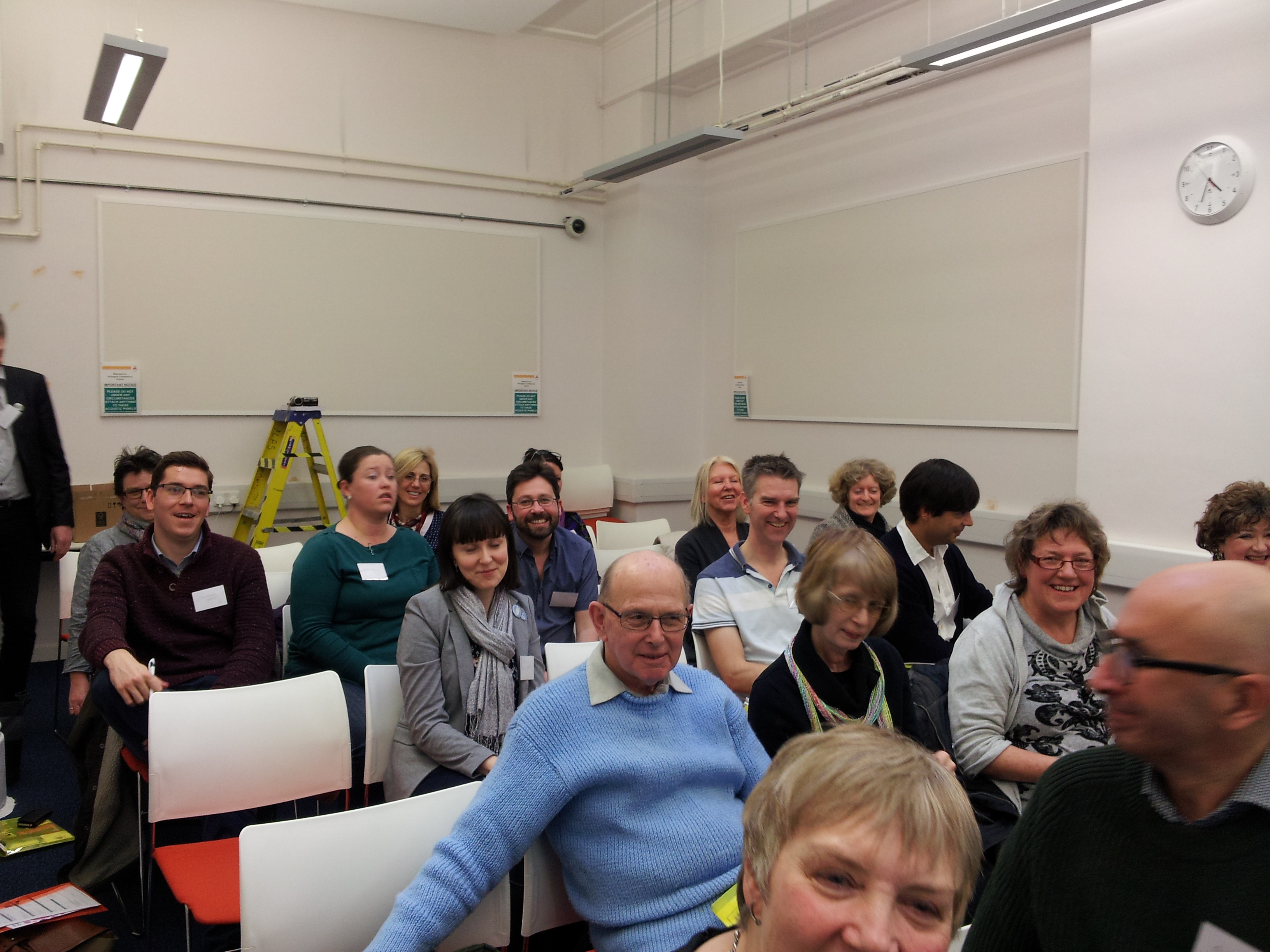
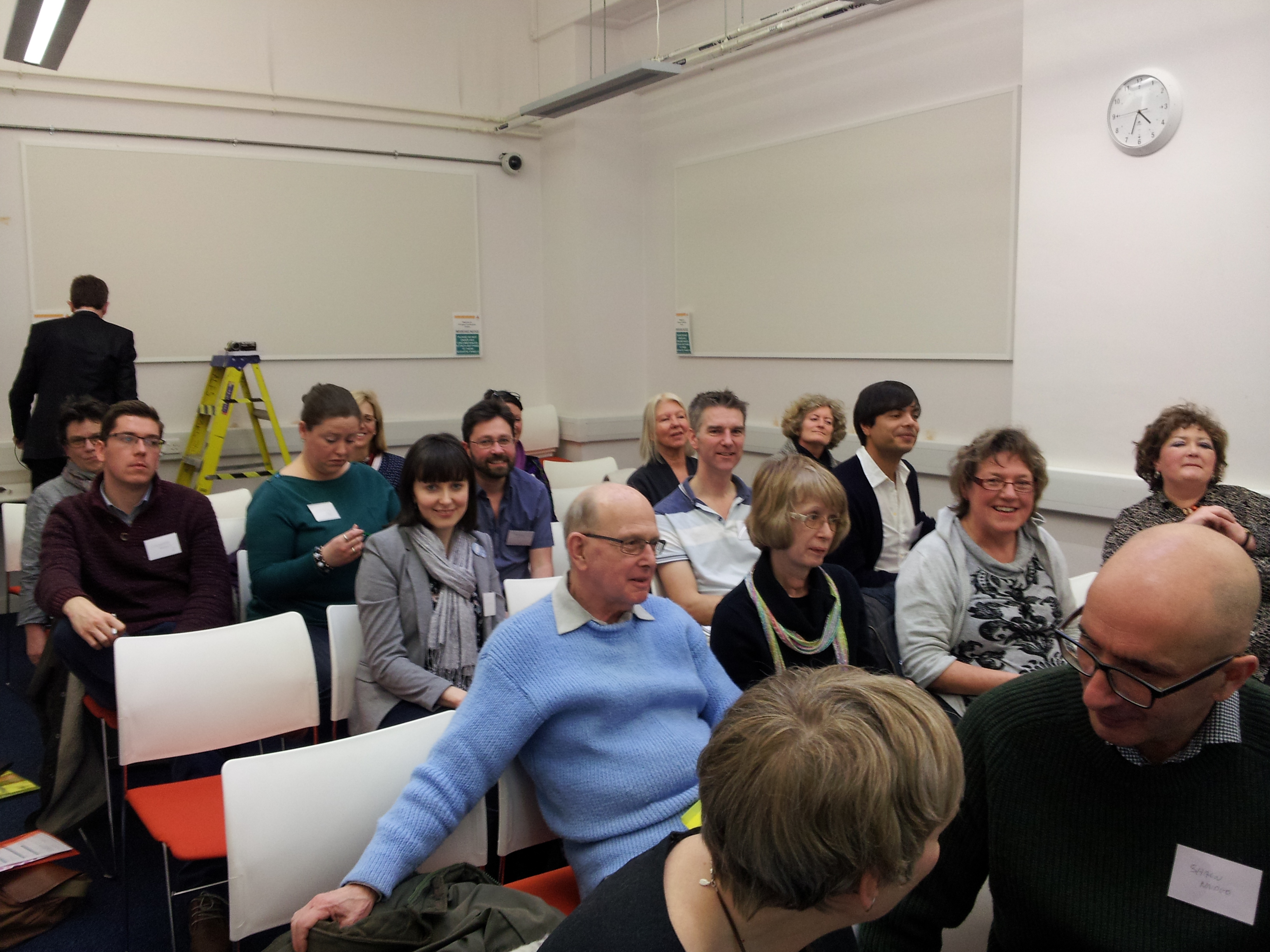
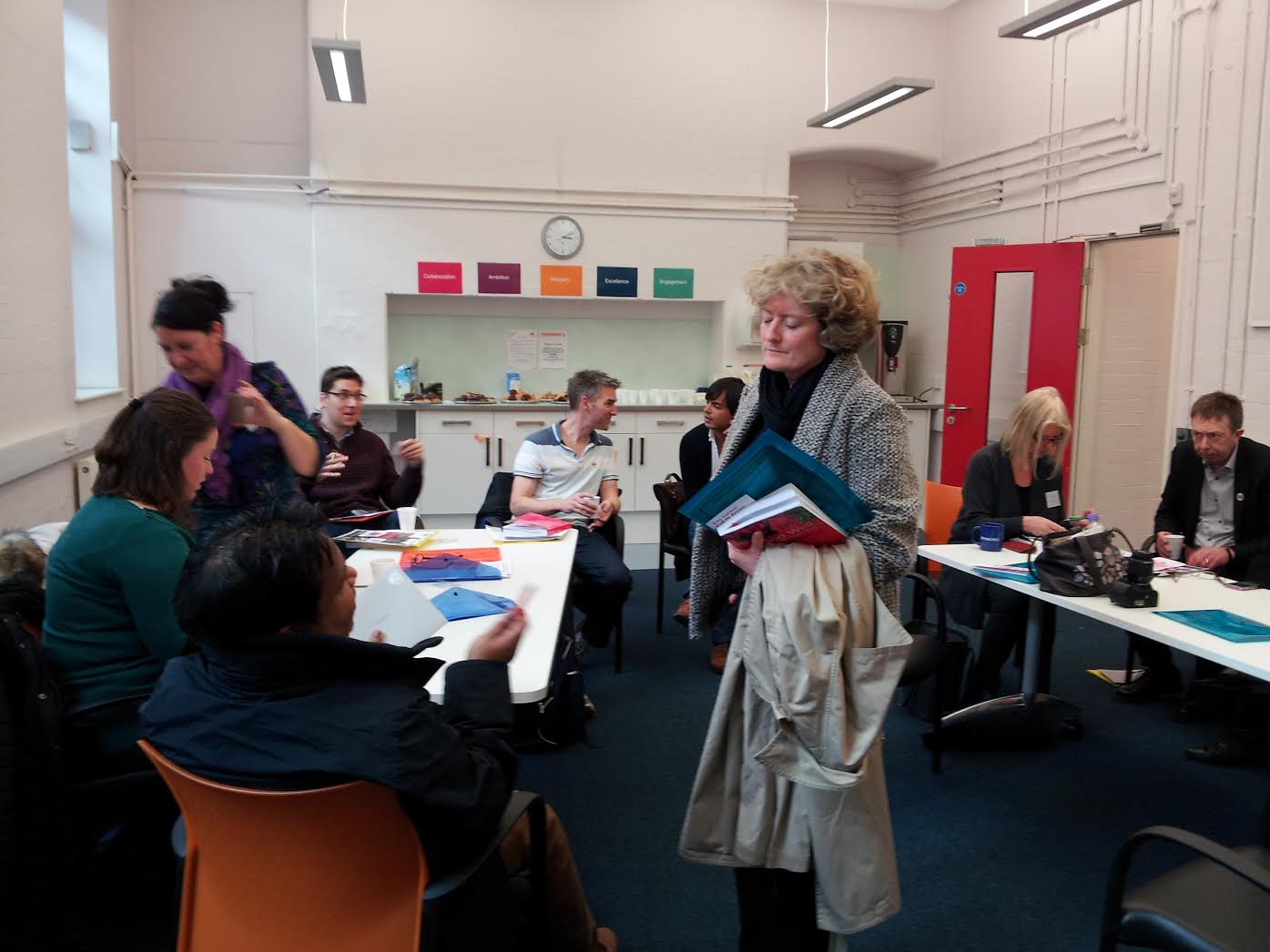
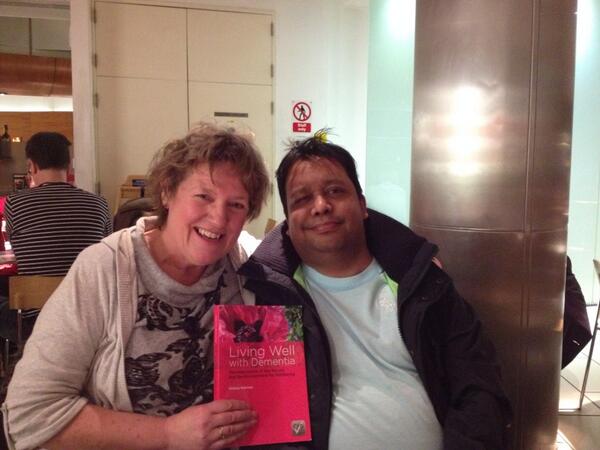
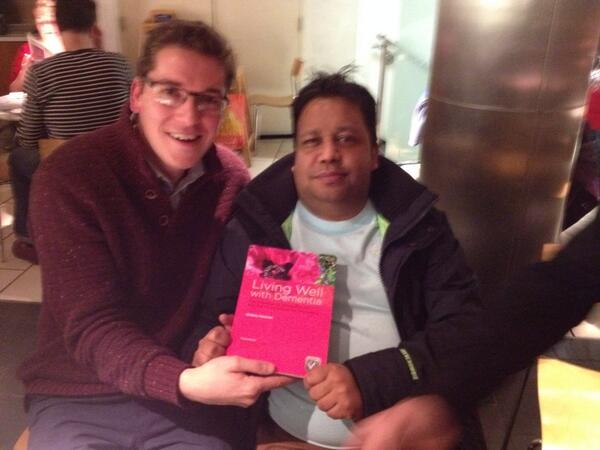
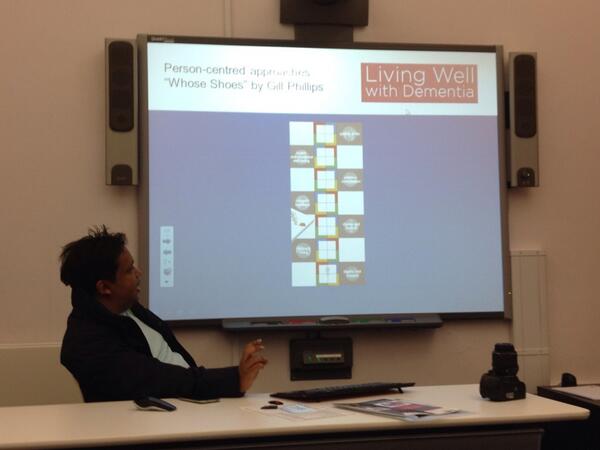

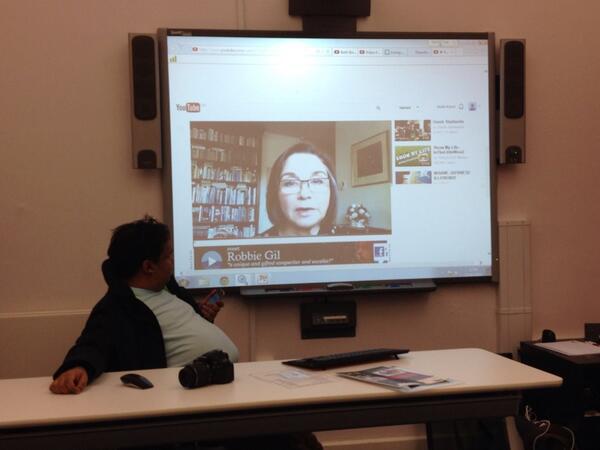

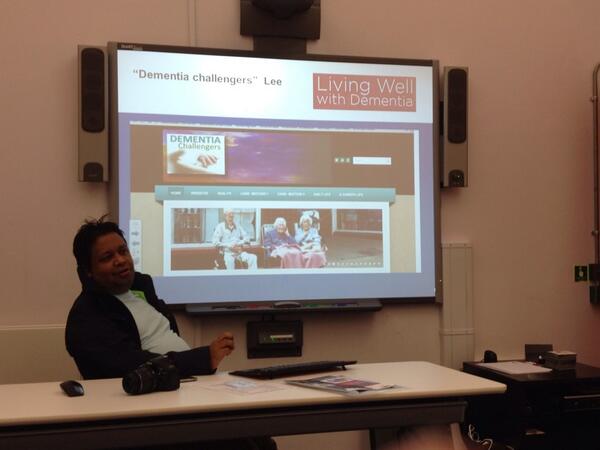
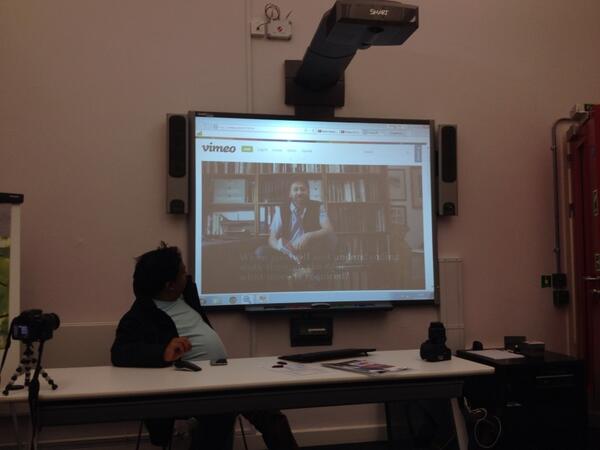
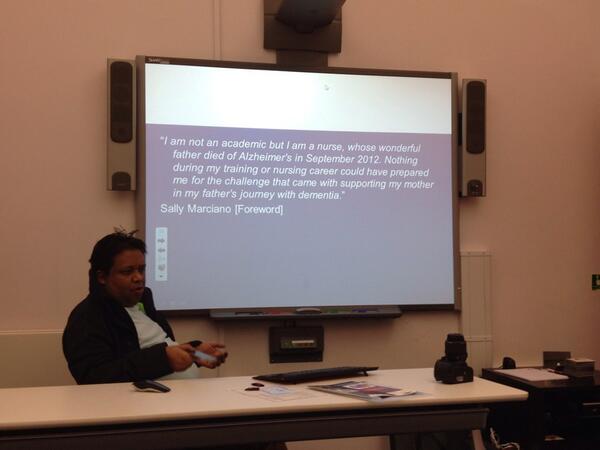
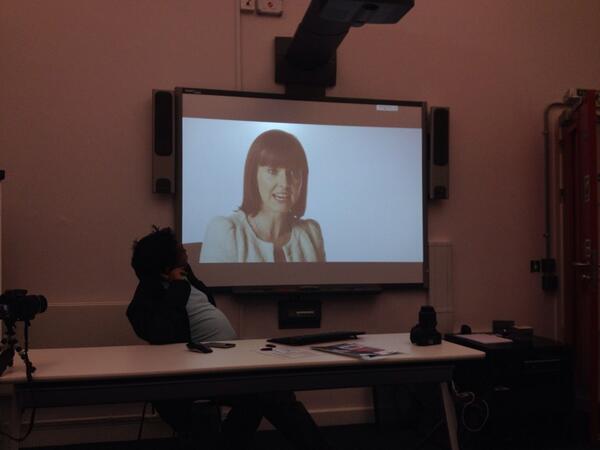
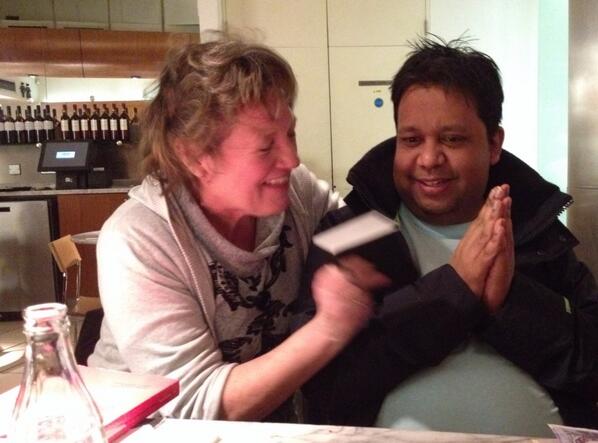


Thanks for sharing this Shibley as I was so sad not to be able to make the day itself. X
Thanks hugely for your support. I feel we’re now getting somewhere though! x
Reblogged this on Whose Shoes? and commented:
I have posted my own round-up of Saturday’s book launch – “Living well with dementia by Dr Shibley Rahman. now re-blogging Shibley’s own summary, particularly the video messages received from Kate Swaffer, Norman McNamara and Dr Peter Gordon – and the videos of Shibley’s presentation, together with many photographs.